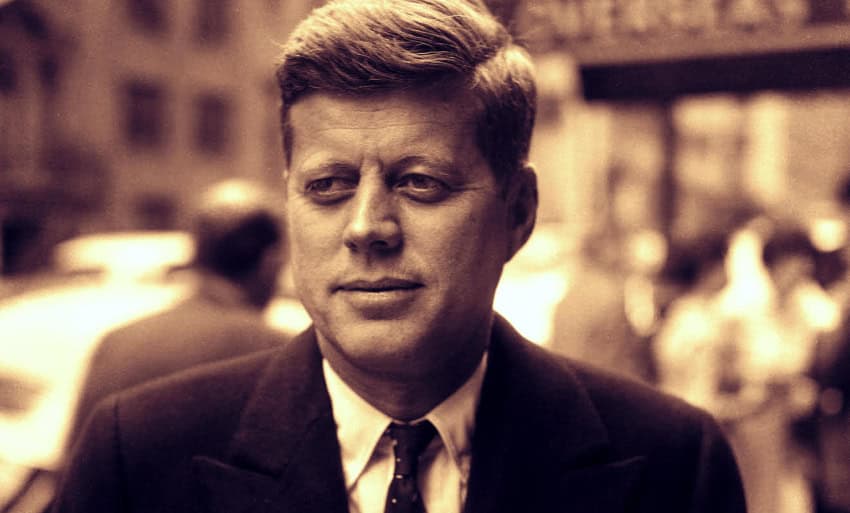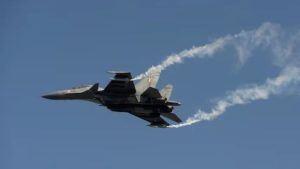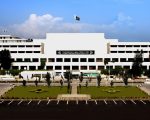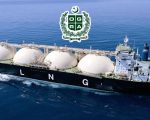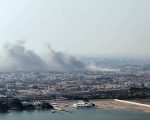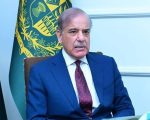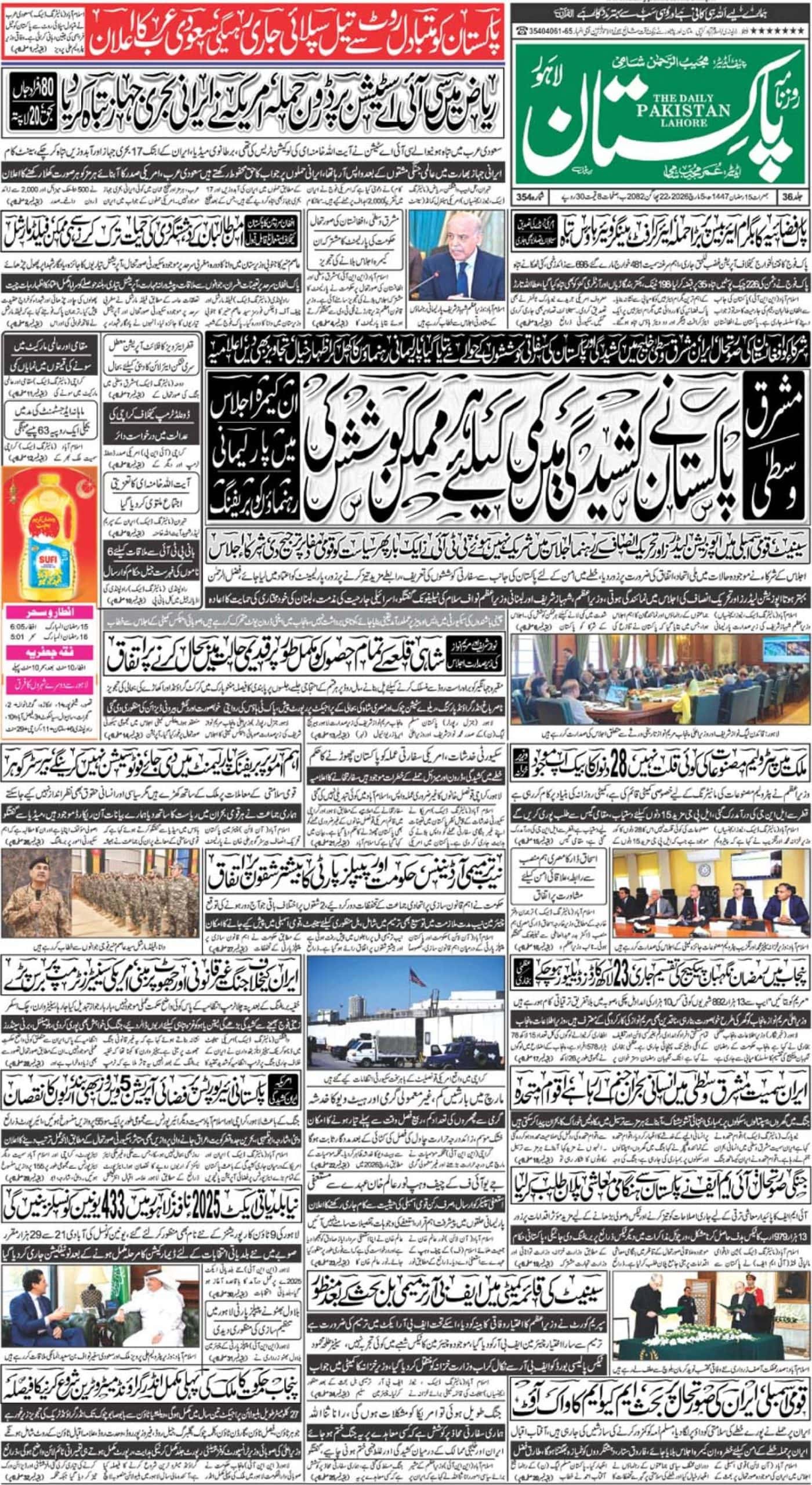(Author’s note: This article is a part of a much longer article on the assassination of JFK)
An overview of Kennedy’s first year in office reveals that the CIA, the military-industrial complex and the Pentagon were relentlessly pushing for military confrontation while JFK deftly avoided possible military clashes in various parts of the world, Cuba, Berlin, Vietnam, Laos, etc. At the same time, JFK was pushing for disarmament, something entirely rejected by the military leadership, the CIA and of course the military-industrial complex. The agenda for disarmament clashed directly with the New World Order agenda, and the CIA, the Pentagon and the military-industrial complex all wanted a One World Government under U.S. control. But since the U.S. is controlled by the One World Cabal (also called High Cabal by Churchill), a global U.S. empire means a global slave state under the control of the Rothschilds, Rockefellers and their likes. In such a situation the old proverb “the servant of the King is the king of servants” would hold true of the American nation and the rest of the world. The Zionist Freemasonic international banking brotherhood would be the King.
In retrospect, the race between JFK and the forces that stood for war is breathtaking and enervating. The forces of war did not relent for one moment, churning out one scheme or another, one pretext or the other, for shoving America into a military conflict directly, and JFK, while adjusting to realities, did not, on one occasion succumb to these pressures. He wanted to keep Noah’s Ark afloat. There is a viciousness behind all these intrigues and pressures that time has rendered obvious. Only a man of JFK’s intellectual calibre and genuine commitment to peace could have dealt with these pressures. Historical perspective has enhanced his stature far above others in the Oval office in the 20th century.
It is important to understand how, through its agents, Wall Street leadership subverts all attempts at bringing about global peace. Donald Gibson writes (Battling Wall Street: The Kennedy Presidency, p 45):
“The men who had dreamed up the Bay of Pigs invasion had already misled and deceived Eisenhower. Secretary of Defence Gates, a veteran of Naval Intelligence who went on to become president and then chairman of Morgan Guaranty Bank, allegedly ordered the 1960 Gary Powers U-2 flight that undermined Eisenhower’s summit with Khrushchev. He did this against Eisenhower’s specific orders to suspend those flights. Without authorization, he also put U.S. forces on alert during the summit. Another architect of the Bay of Pigs fiasco, Richard Bissell, was the man who developed and almost certainly played a role in the Gates-Powers mess.”
Related: Did Israel assassinate JFK?
No wonder Eisenhower had warned of the rise and immense power of the “military-industrial complex”. The forces of war were driven by the owners of the military-industrial complex. Having failed to trap JFK into a war, they decided to take steps that would add to inflation and affect the economy. JFK had brokered a deal between the United Steel Union and the United States Steel Company. The union had accepted a modest settlement in return for a promise by the United State Steel Company not to raise prices of steel. JFK’s philosophy was that an increase in steel prices drove the prices of other things upwards leading to inflation. JFK phoned both, the union representatives as well as the management of the steel company. He noticed that the union responded warmly and happily to his calls but the management responded coldly. As he put it to “the union members cheered and applauded their sacrifice” whereas the management was “ice-cold”. The arrogance of the management towards the President of the United States is shocking. And the arrogance, as we shall see, had its roots in their direct connection to the international bankers. The deal was brokered on April 6, 1962, and JFK had only been in office for just fourteen and a half months.
A mere four days later Roger Blough, chairman of the United States Steel Company sought a meeting with JFK and instead of saying something simply handed him over a few pages on the evening of April 10, 1962. These few pages had simultaneously been released to the press also. The pages mentioned that “effective at 12.01 AM tomorrow” the United States Steel would raise its product prices by an “average of about 3.5%”. JFK was mad; he and the U.S. Steelworkers had been duped. “You have made a terrible mistake”, he told Blough. JFK was so angry that he told his team: “My father always told me that all businessmen are sons of bitches, but I never believed it until now.” To aggravate matters for him the remark was reported in The New York Times on April 23. Who leaked it and why?
The arrogance of the chairman of the United States Steel Company is simply unbelievable. The following day five more big steel companies like Bethlehem Steel (the second largest steel company) joined the price increase. It is quite clear that the big steel companies had acted in tandem. It appears that the Big Steel companies had no deference for the President of the United States. The lack of deference and the hubris lay in the fact that the United States Steel Company included top-level men from corporations like the Morgan Guaranty Trust, First National City Bank of New York, Prudential Insurance Company, etc. Who owns these organisations? None else but the international banking families, the Rockefellers, the Morgans, the Rothschilds, etc. That is where the arrogance of the chairman of the United States Steel Company came from. It is highly probable that his banker masters had sent Blough to send JFK, who was talking about disarmament and global peace, a message. Were they testing him?
What did Kennedy do? He knew that the largest contracts awarded to big steel companies were defence contracts. The overall impact of the 3.5% increase in steel products was about a billion dollars. He immediately started cancelling the contracts for the big steel companies and giving them over to smaller steel companies that had not raised their prices. There were six big companies that had raised steel prices while six smaller companies had not done so. So under JFK’s direction, the Defence Department cancelled its contracts in such a way that the six big companies were hurt while the six smaller companies that had held back the prices benefitted. In case a contract had been awarded jointly to a big company and a small company, the contract was shifted entirely to the small company. JFK ordered that if necessary steel orders are placed to affordable companies abroad.
An investigation into the violation of anti-Trust laws by steel companies had started before the price hike. Robert Kennedy, the President’s brother and the Attorney General ordered the FBI to visit all the big steel companies the very next morning, pick up their records, and question the executives of the companies about price fixing. The government had turned the heat on the executives of the big steel. All executives were subpoenaed for “their personal records”. If an investigation into the violation of anti-Trust laws by big steel was already going on, it was doubly arrogant of Blough et al to behave the way they did. They probably never expected any President to challenge their real owners, the international banking families.
Like a true leader of the common man, JFK then held a press conference on April 11. He stated (Douglass, The Unspeakable, p 139):
“Simultaneous and identical actions of United States Steel and other leading steel corporations increasing steel prices by $6 a ton constitute a wholly unjustifiable and irresponsible defiance of public interest. . . . the American people will find it hard, as I do, to accept a situation in which a tiny handful of executives whose pursuit of private power and profit exceeds their sense of public responsibility can show such utter contempt for the interests of 185 million Americans. . . . Some time ago I asked each American to consider what he would do for his country and I asked the steel companies. In the last 24 hours, we had their answer.”
Related: JFK and the Bay of pigs fiasco
JFK had exposed what the big steel companies were doing – they were showing utter contempt for the interest of the people. They had deceived the government of the United States and the steel workers. The executives must have been baffled and hit hard by the ferocity, speed and intensity of JFK’s response. Having exposed them to the public JFK sent his emissary Clark Clifford the very next day to the bosses of the big steel companies. The big steel companies began caving in. They offered to reduce the price raise to half of its original value to JFK’s emissary. This was again dishonest; there was no need for a price hike and they had violated an understanding with the government and workers. JFK refused to accept their offer – he wanted a return to the situation as it was on April 6, 1962, the day the deal was brokered. The bosses of big steel were told that a thorough investigation into their malpractices was planned by the government.
When Bethlehem Steel learned that big steel companies were to be excluded from a bid for three naval vessels which were to be built, they caved in and withdrew the price hike. Other big companies also followed suit. The heat of governmental pressure and public exposure had been too much for them. They surrendered on April 13, and JFK and the people prevailed. But this public humiliation of the highly arrogant owners of big steel, the international banking families, made them a sworn enemy of JFK. These families had been behind numerous assassinations and wars, including the two World Wars. They could not afford to have a president in power who would block their agenda of perpetual war, public impoverishment and debt bondage. They had been pursuing the agenda of a global slave state since 1773, if not earlier.
Those who owned the big steel companies also controlled the media. That is why a highly damaging report that JFK had said that all businessmen were “sons of bitches” was published on April 23 in the New York Times. This was intended to cause bad blood between JFK and all businessmen, not just those in the steel business, and was intended to damage him. Newspaper articles criticising the president’s decision to intervene on behalf of the people appeared in important newspapers. Henry Luce’s magazine Fortune published an editorial praising the steel boss Blough as a “business statesman” and criticising President Kennedy for exercising a “jawbone control” over steel prices. Henry Luce’s wife had an affair with Allen Dulles, who, according to Paul L. Williams, had the dubious distinction of having slept with around one hundred women! Such is the audacity and arrogance of the powers that be that a president who has acted in favour of the public and the country is criticised and those who mint money at public expense are called statesmen! The title of the editorial was Ides of April. This title was not chosen carelessly – it was reminiscent of the warning to Julius Cesar who was to be assassinated: “beware of the ides of March”. The hurt he had caused the malevolent banking families ran irreversibly and dangerously deep.
It has been pointed out by Donald Gibson (Battling Wall Street: The Kennedy Presidency) that although the steel industry incident has been singled out, JFK had in fact, throughout his Presidency, battled Wall Street. This is significant because Wall Street, the CIA, elements of the Pentagon and the media are allies, the Wall Street leadership being the dominant component in this relationship. Many generals, who serve the interests of the military-industrial complex while in service, are given jobs with the military or banking industry, etc. upon retirement; the military industry is owned by the Wall Street leadership. Numerous CIA Directors have come from Wall Street. In fact, a chapter of Michael Ruppert’s bestseller on 9/11 (Crossing the Rubicon) carries the title “CIA is Wall Street and Drug Money is King”.
JFK’s trouble with Wall Street had to do with the fact that he wanted to eliminate poverty and injustice not just in the U.S., but everywhere. He disliked colonialism and he wanted to coexist peacefully with the East. The One World cabal, which essentially owns Wall Street and the City District of London, has an agenda of bleeding and impoverishing nations, bringing them under debt bondage, exhausting them, destroying traditional religious values, and imposing a global slave state on a weakened, exhausted terrified and stupefied humanity. This Cabal maintains mankind in a state of perpetual pandemonium, confusion, and bloodshed, not allowing humanity a moment of respite. The possibility that we may have the world without war horrifies the One World Cabal. This evil Cabal is brought up in a culture of secrecy and secretiveness, trained and rendered callous and brutal through lifelong secret society memberships, nourished in their secrecy-ridden culture of parasitism and sucking the blood of mankind, fattened by usury while the vast majority of mankind sweats and toils for two square meals a day which may or may not be available to them.
JFK treated developing countries and their struggles with respect and was more aware of the complexities and varieties of nationalist struggles. He did not see the world with glasses that only showed left and right. Gibson has quoted Theodore Sorensen who knew JFK for a decade and worked with him as his Special Counsel (Gibson, p 41):
“In time most of the neutralist leaders came to respect Kennedy’s concepts of independence and diversity and to respect the man who put them forward. They recognized a subtle shift in attitude had aligned the United States with the aspirations for social justice and economic growth within their countries – that land distribution, literacy drives and central planning were no longer regarded in the U.S. as communist slogans but as reforms to be encouraged and even specified by our government – that this nation’s hand was now more often extended to leaders with greater popular backing and social purpose than the ‘safe’ rightwing regimes usually supported by Western diplomats – and that the United States had a president who both understood and welcomed the nationalist revolution and believed that the most relevant contributions from his own country’s experience were not its concepts of private property or political parties but its traditions of human dignity and liberty.”
When Kennedy addressed the American Business Council he noted their arrogance. This Council comprised the top leadership of the top banks and corporations of the country. He told his adviser Sorensen that (Gibson, p 53) the American Business Council was the only gathering that he had addressed that “did not rise to its feet upon the entrance of the President of the United States.” What was the American Business Council trying to convey to JFK? These business leaders probably were one tier below the real owners, like the Rockefellers and the Morgans, the Rothschilds and the Warburgs, etc., and it is quite possible that they did not rise to greet JFK on instructions from those who had real control over them. This Council had been established in 1933 and had enjoyed unusual access to the U.S. government officials. JFK considered this kind of relationship between the government and a Council of private individuals improper.
JFK initiated policies that helped business in general, and during his time small businesses also flourished. This was not to the liking of the secret society dominated Elite. Henry Luce, who owned America’s most influential magazines, Time, Life and Fortune, was a member of the Skull and Bones secret society at Yale. This is the same secret society that has produced George H.W. Bush, George W. Bush, John Kerry and many other leaders of U.S. society, including politicians, judges of superior courts, rectors of important universities, owners of businesses, etc. Time, Life and Fortune were deeply critical of JFK. Why? During JFK’s time, in just three and a half years, the GDP rose from $500 billion to $600 billion, the industrial production increased by 22% and personal income by 15%. These are remarkable figures and yet magazines like these and other “business spokesmen” gave the impression that JFK was “anti-business.” This was utterly incorrect. These “spokesmen” represented a big business which did not like the progress made by small businesses. Big business wanted a monopoly so that it could control and steer things towards their so-called New World Order, a global slave state that could only emerge out of general poverty and worldwide economic hardship. JFK’s policies in this area also ran counter to the goals of secret society brethren. The international banking families were unhappy because their agenda was being obstructed through the spread of general prosperity and JFK’s desire to end all wars.
In order to undermine Kennedy, the Time, Life, Fortune, the Wall Street Journal and Newsweek constantly criticised his policies. These were formidable media outlets. The Wall Street Journal was connected with the Rockefellers as well as Morgan Guaranty. Further, six out of the fourteen directors of Time were members of the Council on Foreign Relations (CFR). Similarly, the Chairman of Newsweek and Washington Post, Walter S. Beebe was a member of CFR and a close friend of the decades-old agent of the international bankers, Allen Dulles. Allen Dulles was, during JFK’s time, the senior most director of the Elite tool the CFR. Dulles was tied to Morgans as well as Rockefellers. Donald Gibson has summed it up (p 68):
“The Lucepress, the Wall Street Journal, and Newsweek hammered away at President Kennedy’s policies, condemning specific policies as well as Kennedy’s use of presidential powers to shape the economy. In doing so, they spoke not for the country nor for business in general, but for highly concentrated economic power organised around America’s leading financial institutions. They were not defending competition and the free play of entrepreneurship but were rather engaging in a conflict with Kennedy over whether it would be private or public power that moulded the future. The interests of old money, of status and privilege, came into confrontation with the most direct expression of a democratic republic – an elected and popular president acting on behalf of a nation’s interests. Actually, these publications were more than just mouthpieces for financial groups and oligopolistic oil companies, they were part of a network of families and institutions that are at the very top of what is generally called the Establishment.”
The international banking families felt the heat of JFK’s pro-people policies, both at home and abroad, to such an extent that David Rockefeller felt compelled to write a few letters to JFK tracing the (alleged) economic woes to presidential policies. JFK responded to these letters, and in his replies disagreed with Rockefeller’s points or ignored them. As a part of a strategy to deliver an open message to the big business community and other influential organs of society, these letters were published by Life in July 1962. The magazine certainly did not obtain these letters from JFK; these were certainly given to them by David Rockefeller directly or indirectly. There was no need for Rockefeller to write to JFK, and if he had written, there was no need to publish a privileged correspondence. Rockefeller was throwing his weight behind the media campaign against JFK. It was, therefore, clear that the global financial Elite and JFK were on opposite sides. To quote Gibson (p 76):
“Economic growth, scientific and technological progress, expanding opportunity, development in the Third World, and social justice were the goals for Kennedy, not the preservation of the class structure. Not only were the government policies he undertook intended to further this disruptive agenda; in many specific instances, those policies meant that decision-making power was being taken over by the author of that agenda. Even where Kennedy’s efforts meant only changes in the rules, these changes were intended to alter investment patterns and tax burdens in a way not in tune with upper-class interests.”
Chapter 4 of James Douglass’s remarkable book (JFK and the Unspeakable) carries the title “Marked Out for Assassination”. Douglass writes (p 141):
“The steel crisis defined John and Robert Kennedy as Wall Street enemies. The president was seen as a state dictator. As the Wall Street Journal put it in the week after Big Steel surrendered to the Kennedys, “The Government set the price. And it did this by the pressure of fear – by naked power, by threats, by agents of the state security police.” U.S. News and the World gave prominence in its April 30, 1962, issue to an anti-Kennedy article on “Planned Economy” that suggested the president was acting like a Soviet commissar.”
The entire Bolshevik revolution and its politburo and its commissars were a creation of the international banking families who were now engaged in a media war against JFK. A president who dared challenge it was utterly unacceptable for the High Cabal. The High Cabal had gained deep control over Europe and USA through almost two centuries of sustained effort and bloodshed. They were not only behind the British-American war of 1812, they were also behind the American Civil War. No deviation from their agenda by any American leader was permissible. That made JFK a marked man.

